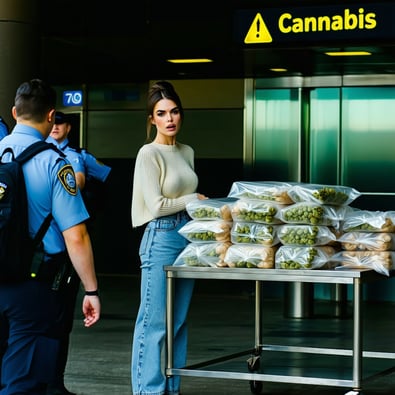Backyard Cannabis Battle in Essex Junction Highlights Clash Between State Law and Local Zoning
In Essex Junction, Vermont, one man’s passion for growing backyard cannabis has turned into a full-blown legal battle over property rights, zoning laws, and the future of small-scale cannabis farming. Jason Struthers, a longtime cultivator, says he’s been growing backyard cannabis legally for years under a state-issued license. But city officials argue that his residential neighborhood isn’t zoned for outdoor cannabis cultivation and now, his crop could be the last of its kind.
The Roots of the Backyard Cannabis Dispute
Struthers, who has cultivated backyard cannabis for two decades, tends to a lush half-acre garden behind his home at 8 Taft Street. His plants, some reaching 14 feet high, are enclosed by a tall fence that conceals them from public view. Despite his compliance with state licensing laws, city zoning regulations prohibit outdoor backyard cannabis farming in residential districts.
The conflict escalated when neighbors complained about odors and noise, sparking a series of hearings, appeals, and lawsuits. Struthers argues that his backyard cannabis operation should be “grandfathered” since his state license predates Essex Junction’s city charter and zoning updates.
State vs. Local Control
At the heart of the backyard cannabis debate is a clash between state and local authority. Vermont’s Supreme Court recently ruled that municipalities can regulate both farming and cannabis cultivation under zoning laws, effectively reversing earlier decisions that protected small growers like Struthers. This precedent allows towns to ban backyard cannabis farms in residential zones, even if they hold valid state licenses.
City officials maintain they are simply upholding land-use laws. “The city has an obligation to enforce regulations consistent with state statute and judicial interpretation,” City Manager Regina Mahony said. For Struthers, however, the decision feels like discrimination rooted in stigma against backyard cannabis growers.
The Larger Impact
Struthers’ case has become a touchstone for small cannabis farmers across Vermont. Advocates argue that backyard cannabis growers play a vital role in maintaining craft cultivation traditions and supporting local economies. Graham Unangst-Rufenacht, policy director at Rural Vermont, called the case “a defining example of scale-appropriate regulation” and the need for clearer rules governing backyard cannabis operations.
A new legislative proposal, H.549, could further restrict outdoor backyard cannabis cultivation in densely populated areas. If passed, it could force Struthers and others like him to shut down completely.
For now, Struthers plans to appeal the city’s ruling. “If I’ve got to choose between ducks and backyard cannabis, I’ll choose the cannabis,” he said. His fight underscores a growing tension between state legalization and local resistance one that could determine the future of backyard cannabis cultivation in Vermont’s evolving cannabis landscape.





